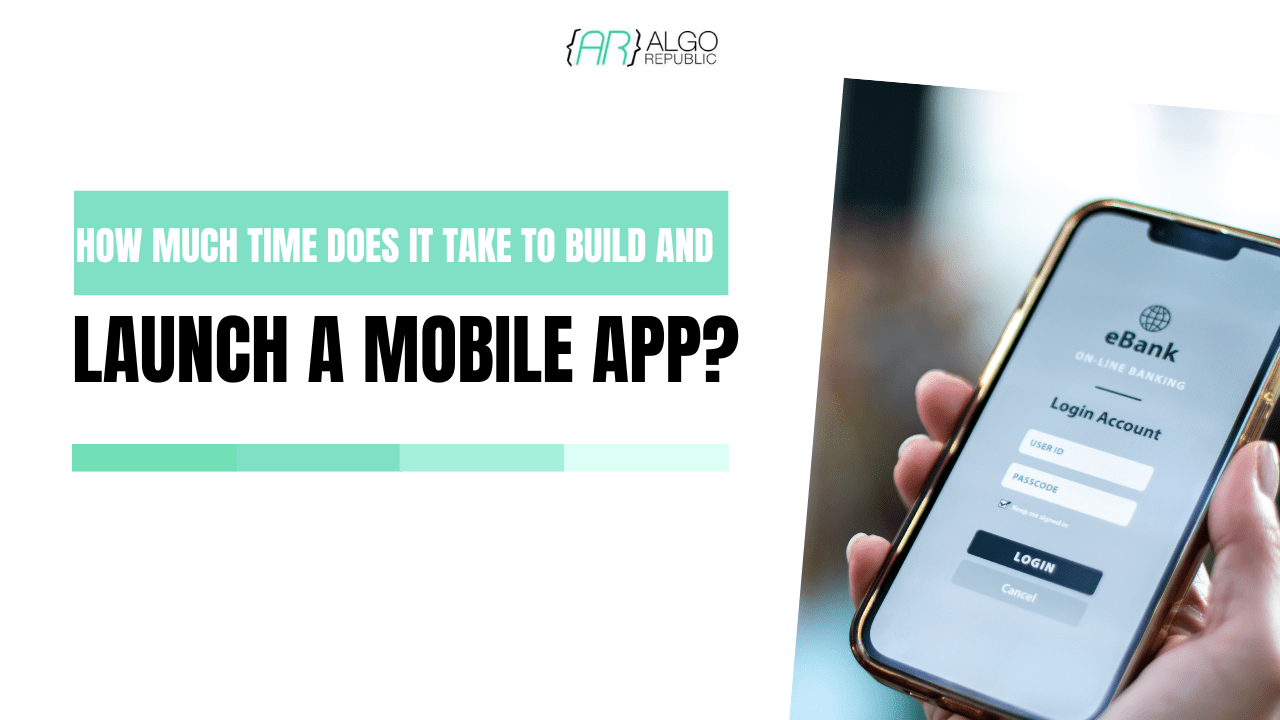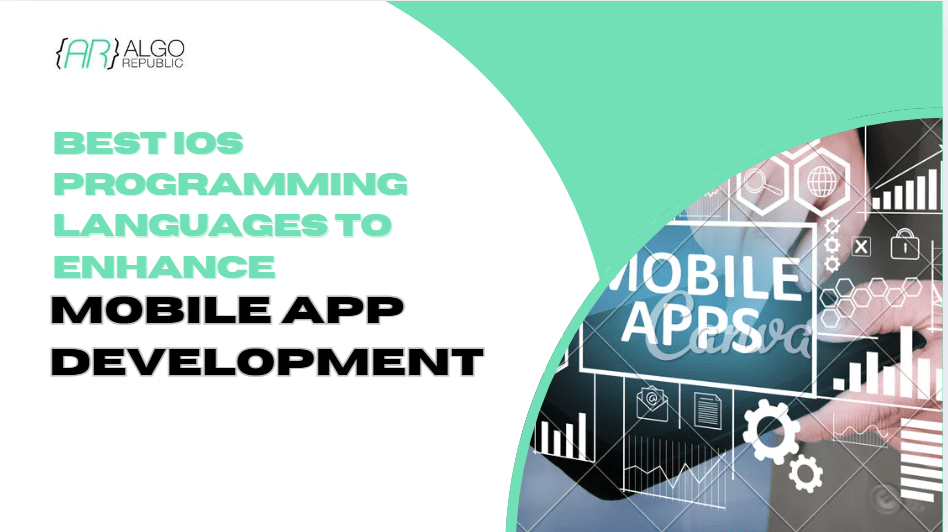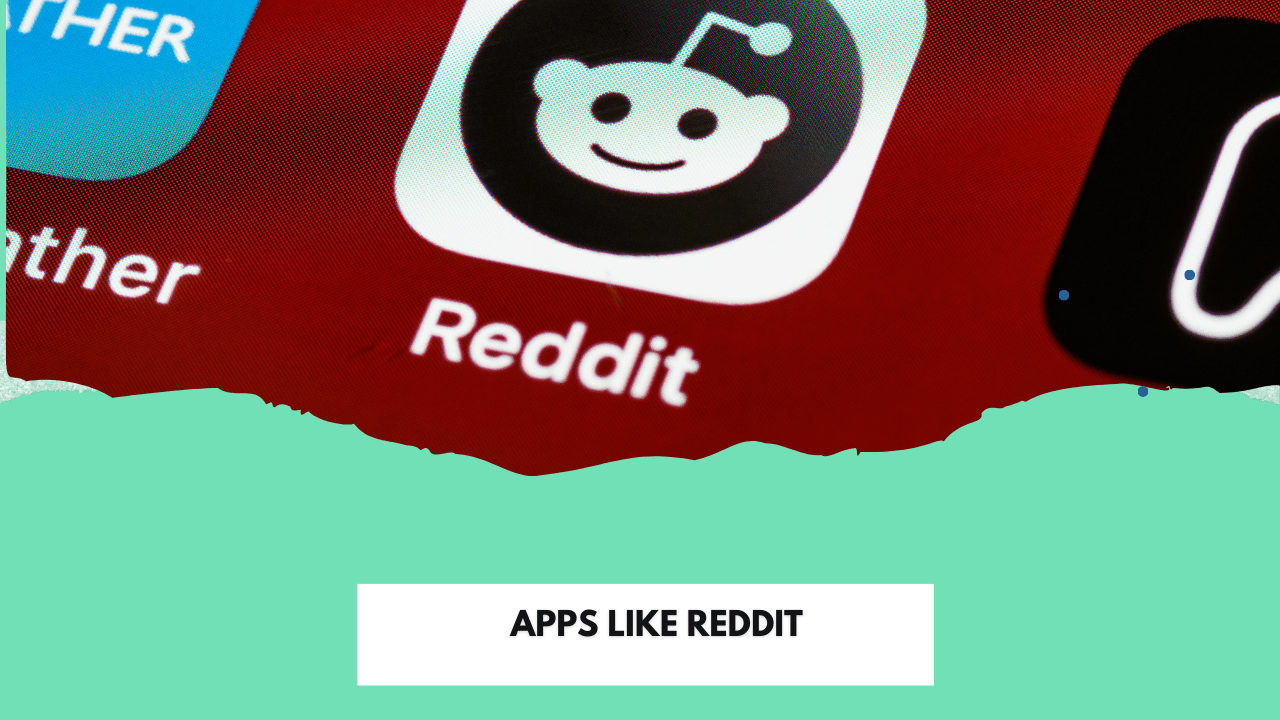Table of Contents
Mobile app development has become a crucial element in today’s business landscape. Whether it is e-commerce, food delivery, or real estate, mobile apps are at the heart of digital transformation. They provide seamless experiences, allow businesses to reach customers more easily, and streamline operations. The mobile app industry has seen significant growth in recent years, with global revenue projected to exceed $935 billion by 2023 . This boom is a testament to how vital mobile apps have become for businesses to stay competitive and relevant.
One common question businesses face when considering a mobile app is, “How much will mobile app development cost?” But immediately following that comes another critical question: “How long does it take to build and launch a mobile app?”
The timeline varies based on several factors, such as the app’s complexity, features, and platform. In this blog, we will explore the key stages of mobile app development, helping you understand the broader process and how long it typically takes to bring an app from concept to launch.
Know How Long it Takes for Mobile App Development
The timeline for developing a mobile app can vary depending on the app’s complexity. Generally, simple apps with basic features can take about 3 to 4 months, while more complex apps with advanced features, such as real-time interactions or integrations, can take anywhere from 6 months to a year. The duration is influenced by factors like design, development, testing, and deployment processes.
App Development Timeline Based on Complexity
|
App Complexity |
Estimated Development Time |
|
Simple App |
3 to 4 months |
|
Medium Complexity App |
5 to 8 months |
|
Highly Complex App |
9 months to 1 year or more |
Simple Apps:
These are apps with basic features like a few screens and limited user interaction. For example, a to-do list app that allows users to create and manage tasks with minimal functionality. Since it involves straightforward design and minimal backend integration, it usually takes about 3 to 4 months to develop.
Medium Complex Apps:
These apps involve more screens, real-time functionalities, and moderate backend integration. An example is a food delivery app that includes features like location tracking, payment gateway, and user profiles. This level of complexity typically requires 5 to 8 months of development time.
Highly Complex Apps:
These apps include advanced features such as machine learning algorithms, artificial intelligence, or real-time processing. An example would be Uber, which integrates live tracking, real-time interaction between users and drivers, and complex backend management. Such apps often take around 9 months to a year or more to develop.
Stages of Mobile App Development with Timeline
You need to know about the process of mobile app development along with the timeline. This will make your priorities straight with your requirements and this way, you can hire the best app developers for your business.
Planning and Research (2 to 4 weeks)
This stage involves defining the app’s objectives, target audience, and core features. Research is conducted on competitors and market needs, and decisions are made regarding the platform (iOS, Android, or both). This process is critical for setting the foundation for the project.
Wireframing and Design (3 to 6 weeks)
Once the planning is done, wireframes are created to map out the app’s structure and user flow. The design phase includes UI/UX design, where the look and feel of the app are defined. Simple apps may only require 3 weeks, while more complex ones take 6 weeks or longer.
Development (3 to 9 months)
Development consists of frontend and backend coding, database setup, and integration with third-party services. The timeline here varies greatly:
- Simple apps in 3 to 4 months.
- Medium complexity apps in 5 to 6 months.
- Complex apps in 6 months to a year or more.
Testing and QA (4 to 6 weeks)
Once the app is developed, extensive testing is done to identify and fix bugs, ensure performance, and check compatibility across devices. Testing can overlap with development in an Agile approach but still takes 4 to 6 weeks on average.
Deployment and Launch (1 to 2 weeks)
After testing, the app is submitted to the App Store or Google Play Store for approval, which may take a few days to a couple of weeks. During this time, marketing efforts may also begin for a successful launch.
Post-Launch Maintenance (Ongoing)
After the launch, continuous support is necessary to fix bugs, release updates, and implement new features. Though there is no fixed timeline for this phase, it typically lasts as long as the app is active and evolving.
Key Factors Influencing the Timeline of Mobile App Development
Here are the factors that affect the time it takes for the Android or iOS App Development:
App Complexity
The more complex the app, the longer it takes to develop. For example, a basic to-do list app might take 3 to 4 months, while apps like Pinterest, with its custom algorithms, advanced UI, and backend, might take up to 9 months or more due to the complexity of features such as content discovery, personalized recommendations, and large-scale image hosting.
Platform and Technology Stack
Apps developed for both iOS and Android will typically take longer due to the need for separate coding environments. Cross-platform frameworks like Flutter can reduce time by reusing code.
UI/UX Design
A simple, minimalistic design is quicker to create, but if the app requires intricate animations, customized themes, and multi-device compatibility, it will extend the design time.
Team Size and Experience
A larger, more experienced team can work on different aspects of the app simultaneously, speeding up the development.
Third-Party Integrations
Apps that integrate with third-party services or APIs, such as payment gateways or social media sharing, require additional testing and implementation time.
Testing and Quality Assurance
Ensuring that the app works flawlessly across different devices, OS versions, and screen sizes takes time. Pinterest, with its millions of users worldwide, had to ensure scalability, responsiveness, and bug fixes, which extended its QA process.
Problems that Slow Down the Mobile App Development Process
Although you are capable enough to develop automated mobile apps using the best methods and managing the timeline for it, inconvenience can still happen due to some factors. Here are the problems which might slow down the process for mobile app development services:
Unclear Requirements:
Lack of clarity in project requirements can lead to frequent changes and revisions, disrupting the development timeline.
Poor Communication:
Miscommunication among team members, stakeholders, and clients can result in misunderstandings about expectations and project scope.
Inadequate Testing:
Insufficient testing can lead to bugs and issues being discovered late in the process, requiring significant rework and delays.
Resource Constraints:
Limited availability of skilled developers and designers can hinder progress, particularly in smaller teams.
Integration Issues:
Challenges in integrating third-party services or APIs can cause significant delays, especially if those services are unreliable or poorly documented.
Essential Ways to Speed Up the Mobile App Development
Here are the important ways by which you can fasten the mobile app development process. By implementing these strategies, mobile app developers can streamline their workflows and accelerate the mobile app development process, resulting in faster delivery and higher-quality applications.
Adopt Agile Development:
Implement Agile methodologies to allow for iterative development. This enables teams to make incremental improvements and quickly adapt to changes, leading to faster iterations and quicker launches.
Utilize Pre-Built Components and Templates:
Leverage existing libraries, frameworks, and UI components to reduce the amount of custom coding required. This accelerates the development process and allows for quicker assembly of the app.
Focus on MVP (Minimum Viable Product):
Start with a Minimum Viable Product that includes only the essential features needed to launch. This allows for faster time-to-market and provides a foundation for gathering user feedback to improve the app in future iterations.
Automate Testing:
Implement automated testing to quickly validate features and identify bugs. Automated tests can run concurrently with development, ensuring that issues are caught early and reducing the time needed for manual testing.
Streamline Communication:
Use collaborative tools and establish clear channels of communication among team members. This reduces misunderstandings and ensures that everyone is aligned on project goals and timelines.
Set Realistic Deadlines:
Create a detailed project timeline with realistic deadlines for each phase. Break down tasks into manageable chunks and prioritize critical features to keep the team focused and motivated.
How is AlgoRepublic the Best Choice for Scalable Mobile App Development Services?
Today, mobile app development is essential for businesses across various industries. It enhances customer engagement, improves operational efficiency, and opens new revenue streams. From healthcare and finance to education and retail, mobile applications enable organizations to meet the evolving needs of their users, offering seamless experiences and innovative solutions. As industries continue to embrace digital transformation, the demand for high-quality, scalable mobile app development services has never been greater.
At AlgoRepublic, we pride ourselves on being the best choice for automated mobile app development services. Our expertise lies in creating highly advanced applications that not only meet the immediate needs of our clients but also adapt to their future growth. Here is why we stand out:
- Gen-AI Solutions: We leverage cutting-edge Generative AI technologies to build intelligent applications that enhance user experience. Our AI-driven solutions streamline processes, automate tasks, and provide personalized insights, ensuring your app remains competitive in a rapidly changing market.
- Scalable Integrations: We understand that as your business grows, your app must evolve. Our team specializes in creating scalable integrations with existing systems and third-party services, enabling your application to expand its functionalities without compromising performance.
- Experienced Team: Our dedicated team of developers, designers, and strategists has extensive experience in mobile app development across diverse industries. We work closely with our clients to understand their unique requirements, delivering tailored solutions that drive results.
- User-Centric Approach: We prioritize user experience in every project, ensuring that our apps are not only functional but also intuitive and engaging. By focusing on the needs of your target audience, we help you create applications that foster loyalty and satisfaction.
Ready to transform your vision into reality? At AlgoRepublic, we are committed to delivering exceptional mobile app development services that help you stay ahead of the competition. Contact us today to discuss how we can create a scalable, innovative mobile application tailored to your business needs!
FAQs:
Several factors affect development time, including app complexity, feature set, platform (iOS, Android, or both), design requirements, team experience, and the development methodology used.
On average, developing a mobile app can take anywhere from 3 to 9 months, depending on the app's complexity. Simple apps may take 3-6 months, while more complex applications with advanced features can take 6-12 months or longer.
Time estimates are typically based on a detailed project plan that includes the scope of work, required features, and milestones. Engaging in discussions with stakeholders and using Agile methodologies can help refine these estimates.
The stages of mobile app development generally include ideation and planning, design, development, testing, and deployment. Each stage varies in duration based on the project specifics.
Yes, development time can be shortened by focusing on a Minimum Viable Product (MVP), utilizing cross-platform development tools, leveraging pre-built components, and maintaining clear communication among team members.
The testing phase can take anywhere from a few weeks to several months, depending on the app's complexity and the thoroughness of testing required. Continuous testing during development can help identify issues earlier, potentially shortening this phase.
Post-launch support is essential for addressing any issues that arise after the app goes live. The time required for updates and maintenance varies, but it is a critical aspect of the overall app lifecycle.
Yes, the development timeline can change due to unforeseen challenges, scope changes, or feedback from testing phases. Regular communication and flexibility can help manage these changes effectively.



